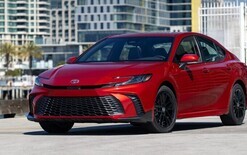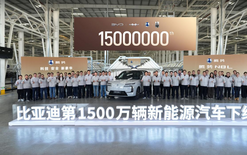Emissions plan faces ‘challenges’

An industry group has described the government’s emissions reduction plan (ERP) as a “step in the right direction” but warns there are still plenty of challenges ahead to cleaning up the fleet.
The Imported Motor Vehicle Industry Association (VIA) also supports the introduction of a scrappage scheme to address issues with vehicles already on the road, rather than policies that purely focus on newly imported cars.
David Vinsen, chief executive, says most of the ERP’s content is as the industry expected but he adds the timing for some of the proposed changes for transport is “heroically optimistic”.
“The emissions reduction plan, as it relates to transport, has been long in the making with the clean car discount and we still have the clean car standard to come,” he explains.
“But additional money to accelerate the whole process came as a surprise, including the suggestion that it be used to encourage subscription-type transport services and alternatives including micro mobility, e-bikes and public transport.
“The problem remains with where the EVs are going to come from. All the vehicle manufacturers are accelerating their design, development and building of EVs but that takes a while to put into place.
“We’re also in competition with every other western jurisdiction for those vehicles and it will take a while for them to come through in the numbers the government wants.
“Looking at converting as much as possible of the fleet to EVs is a step in the right direction but the availability will still be a challenge.”
Vinsen, pictured, notes VIA has long been advocating for an integrated and strategic approach to management of the fleet “rather than ad hoc interventions” and believes a scrappage scheme will now become a permanent fixture.
The ERP outlines how the government wants to increase access to low and zero-emissions vehicles for low-income households by supporting social leasing schemes and trialling an equity-oriented vehicle scrap-and-replace scheme from 2023.
“This trial, I think, is not about can we do it, but how we can do it,” says Vinsen. “The government appears to have made a commitment to a scrappage scheme overall and this is the first dabbling toe in the water to see how best to do it.”
He adds the industry is keen for the government to establish clear strategic targets of how the fleet should look to get maximum benefits in terms of safety, fuel economy and the environment.
“The industry will continue to positively contribute to policy development and discussions with a view to set clear targets and the mechanisms to achieve those targets,” says Vinsen.
“The industry is a demand-driven industry so once clear parameters and clear political mandates are set and we see that affecting public behaviour then we will supply to the demand.
“If the emissions reduction plan is implemented as has been outlined, it signals radical changes to the way New Zealanders own and use vehicles and how they get themselves and goods around.”





